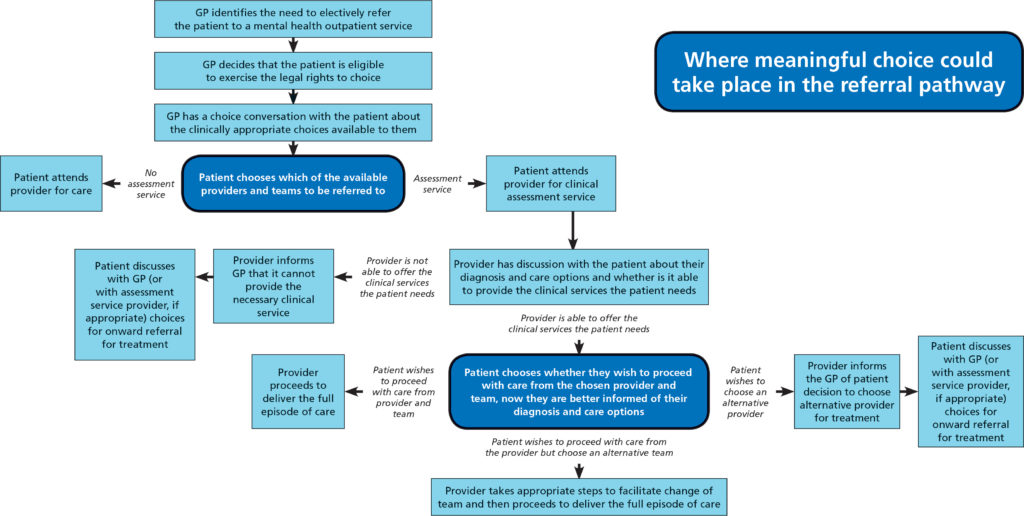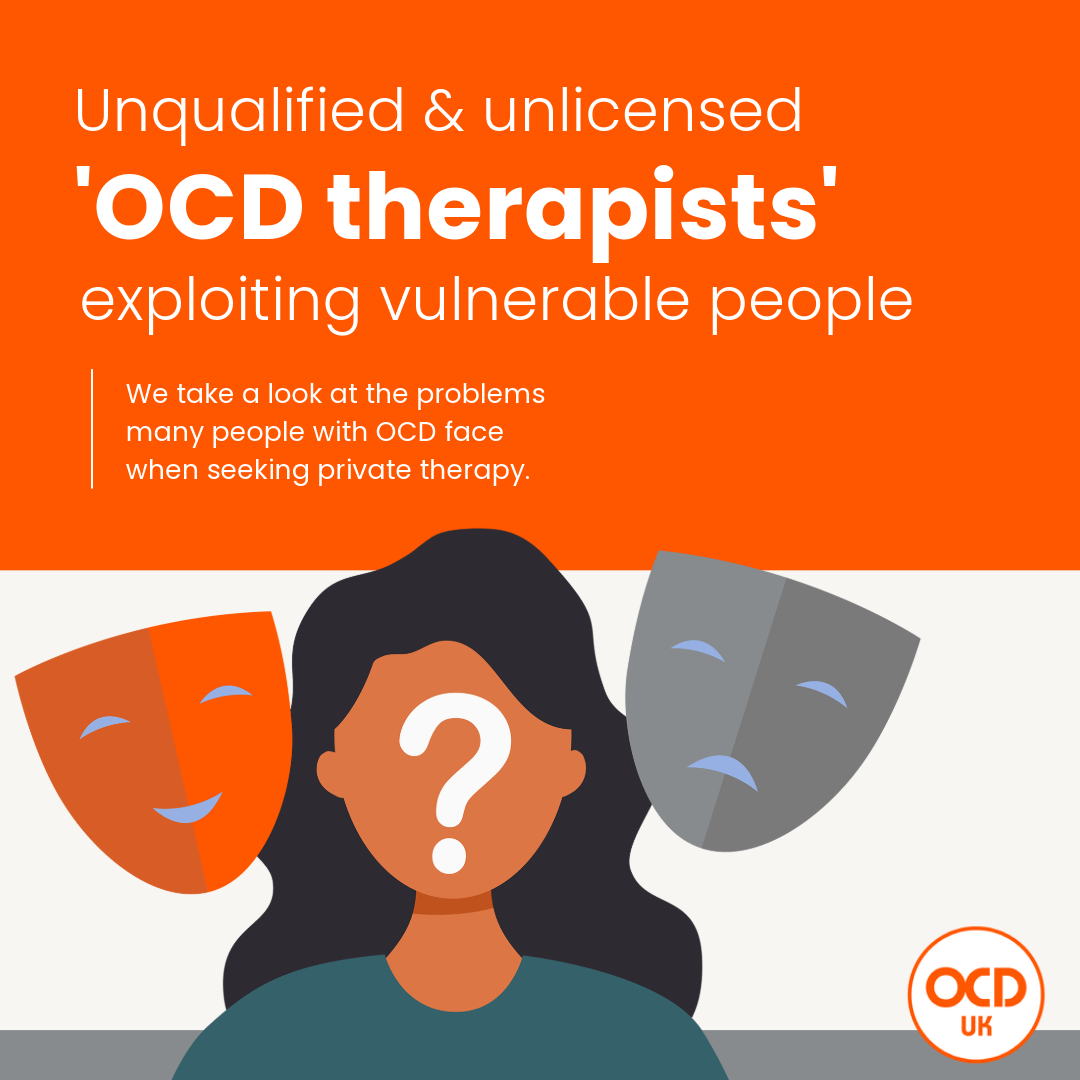 In April 2014, the then coalition government established legal rights so that patients in England have choice in mental health treatment as part of the drive to achieve parity with physical health. The legal rights cover:
In April 2014, the then coalition government established legal rights so that patients in England have choice in mental health treatment as part of the drive to achieve parity with physical health. The legal rights cover:
- Choice of mental healthcare provider
- Choice of mental healthcare team
This is known as your Right to Choose. When you are referred by a GP to a consultant or specialist in mental health (such as an IAPT service), you now have the right to choose the organisation (treatment provider) that provides your care.
What this means…
You have a right to choose the provider that best meets your individual needs
If a GP refers you for mental health treatment, you have the right to choose the provider of your care. This could be if you’re sent for OCD treatment to an IAPT service, or to secondary care services, you now have the right to choose who provides that level of care.
At the moment when a patient requires treatment they are automatically referred (or they can sometimes self-refer) to their local service within the same CCG area that they are registered with a GP. For the majority of people that will be fine, and travel restrictions may mean they can only access local services anyway. However, for others where travel is not restrictive, there may be occasions where they wish to be referred to a different NHS service.
Having a ‘Right to Choose’ can be helpful for a few reasons.
- You may wish to access treatment closer to work or another location.
- You may wish to access treatment at a neighbouring service provider that has a better track record of treating OCD or shorter waiting times.
Some examples of this might be:
- You live in Sussex or Kent, but work in London. So it’s much easier to go for therapy during your lunch break or before/after work in London than have to leave work early to travel back to Sussex/Kent.
- You live in Derby and need secondary care treatment, but know that in Nottingham they offer an OCD treatment group for people on the secondary care waiting list and access to a recovery college, which Derby don’t yet offer.
- You know that the specialist mental health trust, South London and Maudsley NHS Foundation Trust (SLaM), in addition to providing the specialist Centre for Anxiety Disorders and Trauma (CADAT) clinic, also run IAPT and secondary care services, so you wish to refer to one of those services because of their connections to the CADAT clinic.
You can choose any provider of the service you need
What the legislation states is that choice should be offered at a point in your treatment where you can make a meaningful decision about who will provide your care. The decision will often be made with your GP on referral to a specialist.
When you are referred to one of the types of services made available by your commissioner, you can choose to go anywhere in England for it as long as the provider chosen works with the NHS and fits with your care needs, the GP will need to be clear it’s clinically appropriate for you. This means you can choose providers known for specialist care or tertiary care if they offer the type of service required.
However, the right to choice doesn’t mean that you can choose different types of service that aren’t suitable for your needs. For example, if referred for a consultant outpatient appointment you can’t choose inpatient therapy, or if sent to an Improving Access to Psychological Therapies (IAPT) service you can’t choose a consultant outpatient appointment.
In some areas an assessment service will help to decide what type of treatment is best. If this is the case, you can choose a provider once the assessment has recommended a type of treatment. If you’re already receiving treatment for OCD, you can’t implement your ‘Right to Choose’, but if you’ve already been seen by a provider and discharged, you can choose a different one if your GP thinks you need further treatment, the flowchart explains the pathway for this.
What should you do if you believe your right to choice is not being facilitated?
In most cases you should first speak to your GP. However, if you don’t feel comfortable doing this or if you are dissatisfied with the outcome, you may wish to complain to another organisation, the pathway for this is shown below.
- Contacting your local healthcare commissioners (CCG)
- If after speaking with your local CCG you are still concerned that you are being prevented from exercising your right to choice, you may want to contact NHS Improvement. NHS Improvement can provide advice about choice issues and may be able to resolve individual concerns. You can email them on nhsi.cooperationandcompetition@nhs.net
- If NHS Improvement cannot resolve the situation, you should try contacting NHS England. You can email them on england.choice@nhs.net
- Finally, if all else fails, try contacting the Parliamentary and Health Service Ombudsman
Of course OCD-UK are here to help you with any of this process should you need to clarify any aspect of your ‘Right to Choose’.
What to read next:
























